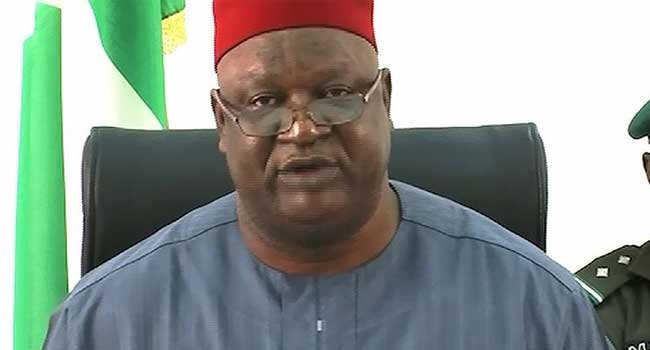Senator Anyim Pius Anyim, former President of the Senate and Secretary to the Government of Federation (SGF), says fear of losing influence and authority makes political leaders afraid of successors.
Anyim said this in on Tuesday at the University of Nigeria Nsukka (UNN), Enugu State, while presenting the Maiden Lecture at the Faculty of Social Sciences entitled: “Political Succession and Nation Building in Nigeria: Problems and Challenges”.
He said that it was the fear of losing influence, dominion and authority by leaders who once wielded power that made them reluctant to willingly hand over to a successor.
According to him, the fear is higher especially if the successor is not their chosen candidate or have a tendency not to be subservient to them.
“This situation of not having influence over the affairs of a state or office they once occupied gives them a sense of apprehension and leads to fear of a successor,” he said.
Read Also: George Floyd killing: Ex-police officer Derek Chauvin found guilty on all counts
Anyim said that some leaders would prefer a person who would do their biddings at any point in time against the collective interest of the people.
“This is the reason god-fatherism still holds sway in virtually all facets of our nation,” Anyim said.
The former SGF urged leaders to lead the people with justice and fear of God.
He said that it was so that people could be committed to assisting in nation-building and there would not have cause to fear during time to leave office at the end of their tenure.
“If leaders lead with fairness, equity and sense of belonging, they will not be afraid of any successor.
“Good leadership will enable leaders to address the socio-economic needs of the people with available resources at their disposal.
“Fear of political succession leads to corruption, creates instability and insecurity.
“It erodes fundamental freedoms and liberties such as right to equal opportunity to participate in government, freedom of association and the right of the people to freely choose their own leadership,” he said.
Anyim expressed appreciation to the faculty for finding him worthy to deliver the first lecture of the faculty.
In a remark, the Vice Chancellor of the university, Prof. Charles Igwe, thanked the guest lecturer for his numerous supports to the institution while in office and described him as a critical friend of UNN.
“The university community is pleased with your numerous achievements both as president of the senate and SGF.
“We look forward to benefiting from the fountain of your vast knowledge on the lecture topic.
“We commend the faculty for bringing a distinguished Nigerian like you to deliver this lecture,” he said.
Speaking, Prof Aloysius Okolie, the Dean of the Faculty, said that “the faculty is driven by unending desire to restore the dignity of man through persistent ethical research, collaborations and promoting cutting-edge research in social sciences.
“The faculty was recently ranked among the best faculties of the Social Sciences in the World as a result of the quality of its research output,” the dean said.
The dean solicited for support to enable the management to tackle fund and infrastructural challenges facing the faculty.
He listed some of the faculty needs to include: provision of faculty lecture Hall, library, construction of 50 self-contained professional offices with critical infrastructure.
He also mentioned the provision of 500 seats in the lecture hall among others.
Earlier, Chief Jude Ozah, the traditional ruler of Ogwashi-Ukwe kingdom in Delta, who was the Chairman of the occasion, said that the faculty lecture topic was appropriate given the difficulties and challenges the country faced.
“This public lecture is not only appropriate but timely, given what the country is facing now.
“Indeed, the basic problem hindering national development is rooted on distrust and mutual suspicion.
“Efforts by successive leaderships in Nigeria to stem the tide of national disunity appear not to be yielding desirable results,” he added.



Leave a Reply